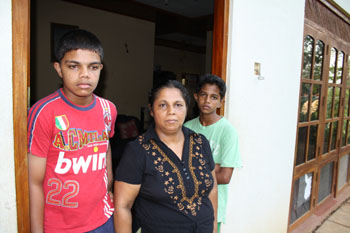Internet blotter
Computers belonging to South Korean government officials have been infiltrated by targeted malware in email. Chinese hackers are suspected. Contrary to what this article says, I’m betting that the attachments were PDFs, which are currently the document of choice when attempting to infect journalists’ machines. Another intriguing academic paper, this time on the structure of…
Use your Blackberry to map global surveillance
The University of Toronto’s Citizen Lab has announced a research project to analyze the global infrastructure of Research In Motion, maker of the BlackBerry. It’s looking for BlackBerry users from any country to take part–especially those in the United Arab Emirates, Saudi Arabia, India, Indonesia, Russia and China. All of these countries have at some point…
Burma’s exile media hit by cyber-attacks
Bangkok, September 27, 2010–The Committee to Protect Journalists is gravely concerned by cyber-attacks against three exile-run Burma news outlets, Irrawaddy, Mizzima News, and the Democratic Voice of Burma (DVB). The distributed denial of service (DDoS) attacks have shut Irrawaddy’s main website while temporarily blocking access to Mizzima’s site.
More on RIM
Another piece on RIM by the Guardian, this time reporting that the UAE were after BlackBerry messaging info, because of its use in spreading gossip about high-profile Emiratis. These quotes (translated here) from Dubai’s police chief, Lt.-Gen. Dahi Khalfan Tamim, where he says the ban was also “meant to control false rumors and defamation of…

What should journalists know about BlackBerry fights?
The discussions between Research In Motion, maker of the BlackBerry, and governments such as the United Arab Emirates, Saudi Arabia, and India continue to hit the headlines. In each case, disagreements center on providing customer communications to security and law enforcement services. The rumblings from these nations over monitoring powers aren’t just limited to RIM:…
Pakistani TV stations remain off the air during floods
New York, August 10, 2010–Pakistan’s major news broadcasters ARY TV and GEO TV are off the air in Karachi and Sindh province for a third day since supporters of the Pakistan Peoples Party (PPP) of President Asif Ali Zardari have reportedly severed cable connections of the distributors that carry them. Demonstrations at the offices of the distributors and the…

Why governments don’t need RIM to crack the BlackBerry
The United Arab Emirates’ Telecommunications Regulation Authority (TRA) announced on Sunday that it would be suspending BlackBerry “messenger, e-mail and Web-browsing services” in the country from October 11, until these “applications were in full compliance with UAE regulations.” Given the popularity of the BlackBerry platform in the country (an estimated 500,000 users from a population of 4.5 million) one…

Living in limbo: The ongoing wait of journalists in exile
The e-mails started on July 15, 2009, and have continued ever since—pleas for help from Iranian journalists who fled their country often with little money and scarce provisions to northern Iraq, Turkey, Afghanistan, India, and a host of other locales around the world. Many lived in hiding throughout Iran for weeks or months before crossing perilous borders…

Journalists in Exile 2010
An exodus from Iran, East Africa At least 85 journalists fled their home countries in the past year in the face of attacks, threats, and possible imprisonment. High exile rates are seen in Iran and in the East African nations of Somalia and Ethiopia. A CPJ Special Report by María Salazar-Ferro